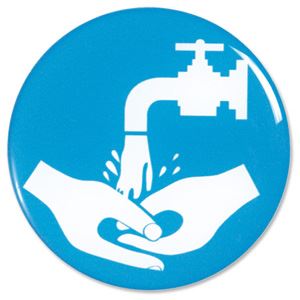Table of Contents
- Infectious Diseases
- Common Infectious Diseases
- List Of Infectious Diseases
- Types
- Causes
- Symptoms
- Transmission
- Preventions
Diseases are disorders that affect either a part of, or the entire body by impeding bodily functions. Diseases can be caused due to infectious or non-infectious causes.
Non-infectious causes are generally due to internal factors, genetic irregularities, while infectious diseases are caused by microorganisms which are the infection causing agents.
What are Infectious Diseases?
Infectious diseases are the diseases caused by various pathogenic microorganisms such as virus, bacteria, protozoan, fungi, and other parasites. These infectious diseases can be transmitted by animals, humans, insects or other agents.
Infectious agents are present all around us, and they come in different shapes and sizes. They can be categorized based on some common characteristics. Some are single-celled animals such as fungi, bacteria and viruses. Other multicellular organisms such as worms are known to cause diseases too.
Common Infectious Diseases
The table below gives an idea about various common infectious diseases caused by different pathogens.
|
Infectious Diseases |
Pathogen |
|
Common cold, influenza, AIDS, dengue fever |
Viruses |
|
Typhoid, Cholera |
Bacteria |
|
Kala-azar |
Leishmania (Protozoa) |
|
Acne |
Staphylococci (Bacteria) |
|
Sleeping sickness |
Trypanosoma (Protozoa) |
|
Elephantiasis |
Worms |
These infections are caused, when an organism invades into the body cells, releases toxins and triggers various reactions in the host tissues.
Also Read: Bacterial Diseases
List of Infectious Diseases
Here is the list of a few infectious diseases:
-
Polio
-
Rabies
-
Mumps
-
Dengue
-
Plague
-
Malaria
-
Anthrax
-
Cholera
-
Measles
-
HIV/AIDS
-
Smallpox
-
Influenza
-
Meningitis
-
Diphtheria
-
Melioidosis
-
Hepatitis A
-
Hepatitis B
-
Hepatitis C
-
Tuberculosis
-
Yellow Fever
-
Typhoid Fever
-
Whooping cough
-
SARS-Severe Acute Respiratory Syndrome
- COVID-19
Types of Infectious Diseases
There are various types of infectious diseases caused by different pathogens. These diseases are mentioned below:
Viral Infections
There are millions of viruses existing in the world. They are the main cause of viral infections such as common cold, influenza, etc.
The virus invades the body of a host and attaches itself to the cell where it releases its genetic material. The cell replicates and the virus multiplies. The cell lysis and releases more viruses that infect new cells.
Few viruses change the function of the cells instead of killing the cells. For eg., Human Papillomavirus, Epstein-Barr Virus causes uncontrolled replication of cells that leads to cancer.
Bacterial Infections
Bacteria can survive in any environment from extreme heat to extreme cold and even radioactive waste. There are numerous bacterial strains some of which cause diseases.
The bad bacteria cause diseases while good bacteria destroy bad bacteria and prevent diseases. Cholera, tuberculosis, diphtheria, typhoid are some of the infectious diseases caused by bacteria. They can be treated by antibiotics but some bacteria become antibiotic-resistant and cannot be treated.
Fungal Infections
A fungus decomposes and absorbs organic material with the help of an enzyme. Many fungal infections appear in the upper layers of the skin while some penetrate to the deeper layers. Fungal spores when inhaled can lead to fungal infections that affect the whole body.
Prion Diseases
Prion is a protein without a genetic material. If the prion is folded abnormally, it affects the structure of the normal proteins and causes deadly diseases such as Creutzfeldt-Jakob Disease. Such diseases spread rapidly and are usually fatal. They do not replicate in the host but stimulates abnormal behaviour in the body cells.
Other Infections
Protozoa, Helminths, and Ectoparasites are also responsible for causing infectious diseases. Protozoa are transferred by contact with faeces. Amoebic dysentery is caused by protozoa.
Helminths include flatworms and roundworms that cause infections in humans.
Ectoparasites such as mites, lice, ticks, etc. attach to the skin and cause infections.
Also Read: Human Diseases
Symptoms of Infectious Diseases
The symptoms of infectious diseases depend upon the site and the type of pathogen affecting the body.
Viruses target specific cells. E.g., the rabies virus affects the nervous system. Some viruses cause warts, runny nose, muscle ache, etc.
A person affected by bacterial infection will experience symptoms such as fever, swelling, heat, pain, swelling in the lymph glands etc.
Rashes on the skin are an indication of fungal infections.
Prion diseases damage the brain, memory loss, and cognitive difficulties.
How are Infectious Diseases Transmitted?
The infectious diseases are spread in the following ways:
-
When an infected person sneezes or coughs, the droplets containing the pathogen of diseases such as influenza, common cold, etc. might spread in the air and infect others in the vicinity.
-
Touching an infected person, or their body fluids such as saliva, blood, sweat, urine, etc. transfer the infections to a healthy person, e.g. chickenpox, measles, etc.
-
Touching the objects or areas touched by an infected person can transfer the infection to a non-infected person and cause diseases.
Preventing Infectious Diseases

Here are some of the practical ways which can be practised for preventing the infection:
- Vaccination
-
Use of antibiotics.
-
Maintaining proper hygiene.
-
Avoid travelling or going to work when you fall ill.
-
Avoid sharing used personal belongings such as a razor, glass, toothbrush, comb, etc.
-
Keeping your kitchen clean by washing all the used utensils, cooking area before and after preparing each food.
-
Extra care needs to be taken while going to hospitals such as wearing a mask, using sanitizer, etc.
Also Read: Health and Diseases
Stay tuned with BYJU’S to learn more about the Infectious Diseases and their causes along with their symptoms, available treatments and their precautions.


Thanku for giving me extra knowledge in making my project